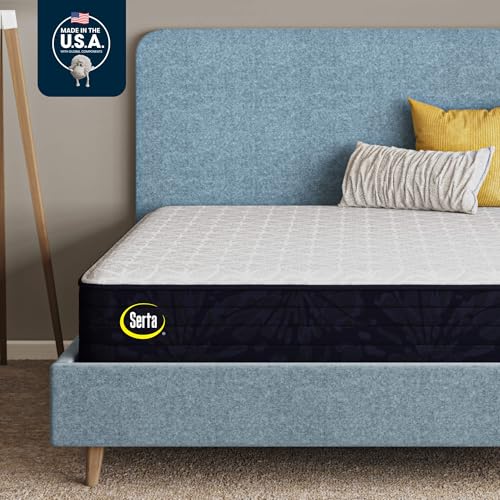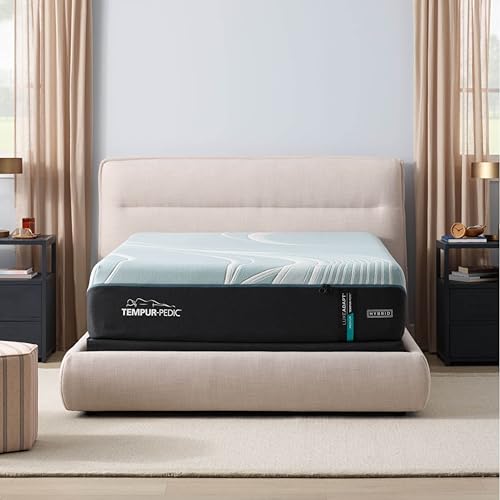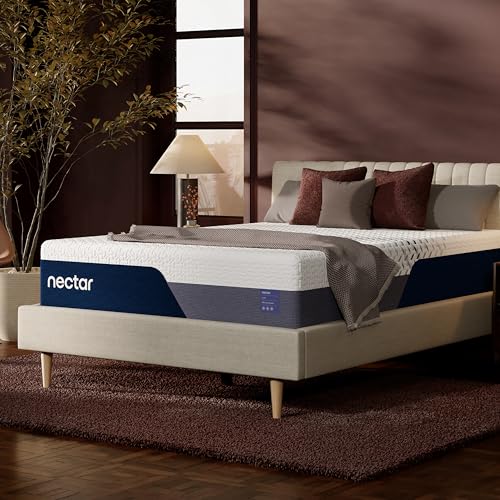Disclosure
This website is a participant in the Amazon Services LLC Associates Program, an affiliate advertising program designed to provide a means for us to earn fees by linking to Amazon.com and affiliated sites.
Introduction
Is there a perfect mattress for seniors? Yes—but it depends on individual needs like pain relief, firmness preference, and mobility support. Aging bodies face unique sleep challenges, including joint pain, reduced mobility, and temperature sensitivity. The right mattress can significantly enhance sleep quality, daily comfort, and even long-term health.
Consider this: 1 in 3 older adults reports chronic sleep issues, many linked directly to inadequate support during rest. Choosing the ideal mattress isn’t just about softness or brand—it’s about improving quality of life.
Best Mattresses for Seniors: Top 3 Recommendations
When it comes to choosing a mattress for seniors, comfort, support, and ease of mobility are non-negotiable. After reviewing dozens of options, here are three standout mattresses that consistently perform well for older adults:
1. Serta Classic Mattress
- Medium Feel: Experience the breathable, supportive and durable 11.5″ Clarks Hill…
- Breathable Materials: A breathable cover, cushioning foams, and pocketed coils…
- Pressure Relief: A layer of gel memory foam helps to cushion pressure points and…
- Why we picked it: Offers excellent lumbar support and customizable firmness options—ideal for seniors with back or joint pain.
- Dual coil-on-coil construction enhances durability and airflow.
- Free white-glove delivery and mattress removal is a bonus for seniors.
2. Tempur-Pedic TEMPUR-Adapt Mattress
- 13-INCH LUXEADAPT MATTRESS: The TEMPUR-LuxeAdapt Firm Mattress is the ultimate…
- Why we picked it: Pressure-relieving TEMPUR material adapts to the body’s curves, offering pain relief for arthritic joints.
- Superior motion isolation—perfect if one partner tosses and turns.
- Proven track record with older adults needing advanced support.
3. Nectar Memory Foam Mattress
- SIMPLE TO SET UP – Just move the box to the room you want to use it in, unbox…
- 2X MORE COOLING – Step up from our Classic model with double the cooling fibers…
- 3X MORE PRESSURE RELIEF – With 2 extra inches of contouring memory foam than our…
- Why we picked it: A budget-friendly option without compromising on quality or comfort.
- CertiPUR-US certified materials ensure it’s safe and hypoallergenic.
- Comes with a 365-night trial and lifetime warranty—great peace of mind.
Why Mattress Comfort Means More as We Age
As we age, our bodies undergo changes that make quality sleep harder to achieve. Comfort becomes more than a luxury—it’s a necessity. Here’s why:
Aging Brings Increased Pressure Points
- Seniors often suffer from conditions like arthritis, osteoporosis, or general joint pain.
- A mattress that doesn’t evenly distribute weight can lead to discomfort or worsen existing aches.
What Seniors Need for Comfort
- Pressure relief for hips, shoulders, and knees.
- Contouring support that hugs the body but doesn’t make movement difficult.
- No “sink-in” traps—seniors need ease of movement to get out of bed safely.
Impact on Sleep Quality and Mental Clarity
- Poor sleep can lead to irritability, memory loss, and increased risk of falls.
- A comfortable mattress promotes deeper sleep cycles that restore both mind and body.
Comfort Features to Look For:
- Memory foam or hybrid layers for soft-yet-supportive cushioning.
- Quilted top layers for a plush feel without sacrificing support.
- Zoned support or multi-layered foams that accommodate different parts of the body differently.
Importance of Firmness & Support for Senior Sleepers
The perfect balance of firmness and support is critical for senior sleepers. Too soft, and the spine misaligns. Too firm, and pressure points flare up. Finding the “just right” feel is essential to sleep quality and physical health.
Why Firmness Matters More with Age
- Muscle mass and bone density naturally decrease over time.
- Seniors need a mattress that keeps the spine aligned to avoid back and neck pain.
- Improper firmness often leads to tossing, turning, or waking up sore.
Understanding Firmness Levels
- Soft (3–4/10): Feels plush but may cause sinking—not ideal for most seniors.
- Medium (5–7/10): Offers a good balance—enough cushioning with reliable support. Best for most older adults.
- Firm (8–10/10): Provides strong support but can aggravate pressure points. Best for heavier seniors or those with back pain who sleep on their back or stomach.
Support = Long-Term Spinal Health
- Support means how well the mattress keeps the body aligned, regardless of firmness.
- A supportive mattress reduces joint stress, promotes circulation, and prevents pressure sores.
Top Firmness Features to Look For:
- Zoned support systems (firmer under hips, softer under shoulders).
- Edge support to make getting in/out of bed easier.
- Responsive materials like latex or hybrid coils to aid movement.
Ease of Mobility and Getting In & Out of Bed
For seniors, a mattress shouldn’t just offer comfort—it must support mobility and independence. Difficulty getting in and out of bed can increase the risk of falls and reduce confidence, especially for those with arthritis, joint stiffness, or balance issues.
Why Mobility Matters
- Aging muscles and joints may struggle with movement on overly soft or sink-in mattresses.
- High or low beds can strain knees and hips.
- Seniors with reduced core strength benefit from a mattress that provides push-back resistance rather than enveloping softness.
What to Look for in a Mobility-Friendly Mattress
- Medium-firm surface: Eases movement while still offering pressure relief.
- Responsive materials: Latex and hybrid mattresses are springier, helping users shift positions easily.
- Edge support: Reinforced edges provide a stable base when sitting or entering/exiting bed.
Optimal Mattress Height
- Ideal total bed height (mattress + base): 20–24 inches off the floor
- Too high = climbing struggle
- Too low = pressure on knees and difficult lift-off
Helpful Tip:
Pairing the right mattress with an adjustable base can:
- Elevate head or feet for circulation
- Make getting in/out easier with incline settings
- Enhance comfort for conditions like sleep apnea or acid reflux
Temperature Regulation and Breathability
As we age, the body’s ability to regulate temperature naturally declines. Many seniors experience night sweats, hot flashes, or cold sensitivity, making temperature control a must-have feature in any mattress.
Why Temperature Matters More for Seniors
- Older adults often have thinner skin and slower circulation, increasing sensitivity to heat or cold.
- Medications, menopause, or health conditions like diabetes can cause body temperature fluctuations.
- Overheating disrupts deep sleep cycles, especially REM—crucial for memory and recovery.
Cooling Features to Look For
- Gel-infused memory foam: Draws heat away from the body.
- Open-cell foam: Increases airflow to prevent heat build-up.
- Phase change materials (PCM): Adjust to your body temperature in real-time.
Mattress Types Ranked by Breathability:
- Best: Latex and hybrid mattresses (coil systems allow airflow)
- Good: Gel-infused memory foam
- Poor: Traditional dense memory foam (without cooling tech)
What Else Helps with Cooling?
- Breathable covers made from organic cotton or bamboo.
- Moisture-wicking mattress protectors to absorb sweat.
- Temperature-neutral firmness—softer mattresses can trap more heat around the body.
Bonus Tip:
Always check if the mattress includes cooling certifications or technology, especially for seniors who are hot sleepers or live in warmer climates.
A breathable mattress keeps seniors dry, cool, and comfortable all night—promoting uninterrupted, high-quality rest.
Health Benefits of the Right Mattress for Seniors
The right mattress is more than a comfort tool—it’s a powerful contributor to a senior’s overall health and well-being. Better sleep leads to better days, sharper minds, and more active lives.
How the Right Mattress Supports Physical Health
- Reduces pressure points to alleviate pain in the back, hips, shoulders, and knees.
- Improves spinal alignment, helping prevent long-term postural issues or nerve compression.
- Boosts circulation, especially important for seniors with diabetes or varicose veins.
Mental & Cognitive Benefits
- Quality sleep enhances memory retention and mental clarity.
- Reduces symptoms of depression and anxiety often exacerbated by sleep deprivation.
- Promotes emotional stability and better daily functioning.
Mobility & Recovery Aid
- A good mattress helps muscles recover and joints relax overnight.
- Easier movement in and out of bed reduces the risk of falls or strains.
Additional Health Perks
- Improved immune function through more consistent sleep cycles.
- Support for chronic conditions like arthritis, fibromyalgia, and sleep apnea.
- Lowered inflammation levels, resulting from deep, restorative rest.
Conclusion
Choosing the right mattress for seniors isn’t just about sleep—it’s about health, mobility, and dignity. With aging comes a unique set of needs that the wrong mattress can worsen or the right one can greatly improve. From spinal alignment and joint relief to temperature control and mobility support, the ideal mattress plays a crucial role in everyday well-being.
Quick Recap:
- Look for medium firmness with strong support.
- Prioritize mobility-friendly features like edge support and responsive surfaces.
- Choose breathable materials for temperature regulation.
- Opt for proven health benefits like pain relief and circulation support.
Frequently Asked Questions About the Perfect Mattress for Seniors
What type of mattress is best for seniors with arthritis?
- Memory foam and hybrid mattresses are excellent options.
- They offer pressure relief around joints and contour to the body.
- Look for features like zoned support and gel-infused layers to ease discomfort.
Should seniors choose a firm or soft mattress?
- Most seniors benefit from a medium-firm mattress.
- Too firm can cause pressure points; too soft can lead to poor spinal alignment.
- Body weight, sleep position, and health needs all play a role.
What mattress height is best for elderly individuals?
- An ideal bed height is 20–24 inches from the floor.
- Mattresses that are too high or low make getting in/out of bed risky.
- Consider adjustable bases for extra convenience and safety.
Are adjustable beds worth it for seniors?
- Yes—especially for those with acid reflux, back pain, or mobility issues.
- They allow seniors to elevate the head or feet, aiding circulation and breathing.
- Compatible with most memory foam, latex, and hybrid mattresses.
How long should a senior’s mattress last?
- A high-quality mattress should last 7–10 years.
- Latex and hybrid mattresses tend to be more durable than standard memory foam.
- Replace when sagging, discomfort, or sleep disturbances begin.



